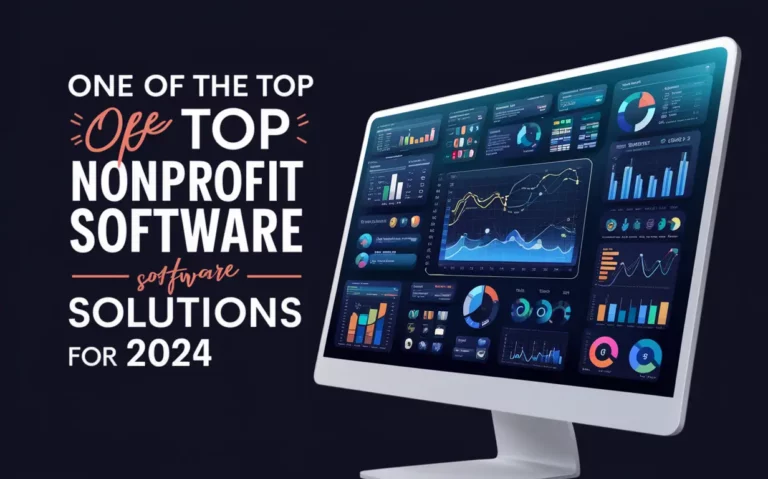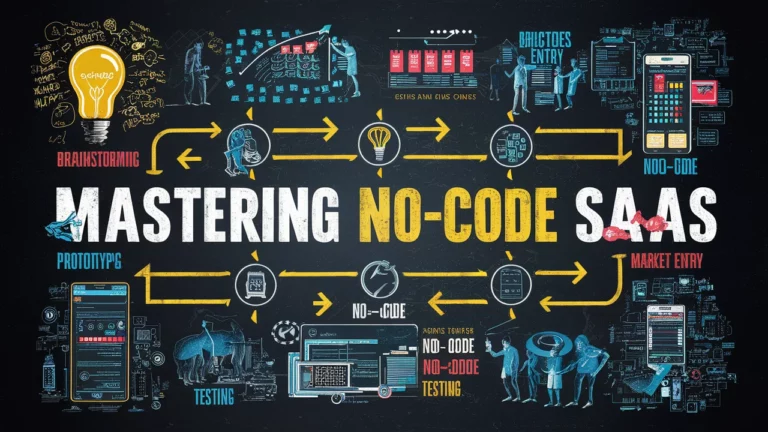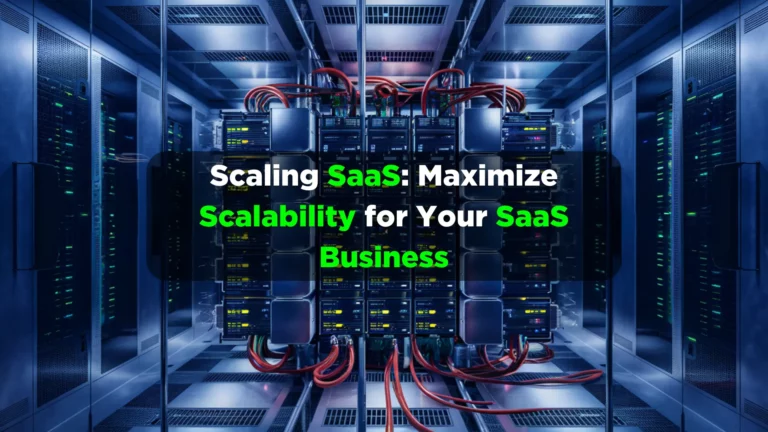Top 10 SaaS Analytics Tools for Your Business Performance in 2025

In today’s digitally driven business landscape, SaaS analytics has become paramount for companies aiming to enhance their operations and overall performance using the SaaS analytics platform. It is a crucial tool for analyzing important metrics and SaaS KPIs; companies can consolidate various data sources for a comprehensive analysis.
These analytics tools offer a comprehensive way to collect, analyze, and interpret data specific to SAAS businesses. Understanding Critical metrics for SaaS companies involves tracking SaaS KPIs and other important metrics that drive business success. It is crucial for SAAS companies seeking to optimize their strategies and maximize recurring revenue.
Stay Updated with the Latest Digital Marketing Tips!
Subscribe to our newsletter and receive our exclusive guide, “Top 10 Digital Marketing Strategies for Success,” straight to your inbox
Our audience supports Ahcrypto. When you click on the links on our site, we may earn an affiliate commission at no extra cost to you. Learn More.
Key Takeaways
Introduction to SaaS Analytics
Overview of SaaS Analytics
They are delving into SAAS analytics, which involves examining various data points sourced from SAAS data analytics tools to provide insights crucial for decision-making. These tools offer a centralized solution for tracking key metrics every SaaS business should monitor. A dashboard that displays SAAS metrics such as churn rate, subscription details, and other essential information regarding a SAAS product’s performance.
By leveraging the power of SAAS analytics software by analyzing data from various sources, businesses can gain a holistic view of their operations and customer interactions, helping them identify essential metrics and areas for improvement.
Importance of Analytics Tools in SaaS Business
Ensuring the proactive usage of analytics tools is vital for every SAAS business’s survival and growth in the competitive SAAS industry. These analytics features are designed to cater to the specific needs of SAAS companies, offering data integration capabilities, predictive analytics, and other advanced functionalities essential for making informed decisions. Metrics like customer churn, recurring revenue, and churn rate are critical metrics that every SAAS business must monitor regularly to drive success.
Key Metrics to Track

Tracking key metrics is essential for monitoring and improving performance in SaaS businesses. Let’s explore some vital metrics to focus on for success.
In the Software as a Service (SaaS) realm, in which SaaS companies don’t proactively track their data to make informed decisionsIn the SaaS realm, companies understand that success hinges on their ability to monitor and analyze performance data effectively, mainly when they track their data to make proactive adjustments.
This is where the power of SaaS analytics comes into play, serving as the engine for insights and decision-making. Businesses can dive into complex data derived from various sources using tools like Google Analytics and specialized BI tools. SaaS companies that do not proactively leverage these insights might be disadvantaged.
Hence, the need for SaaS analytics platforms becomes non-negotiable, embodying the backbone for tracking every vital aspect of your SaaS business.
Firms must use a SaaS analytics system tailored to their needs to thrive. Such a system should offer a comprehensive analytics tool for SaaS businesses. Analytics platforms can dissect significant data sources, enabling SaaS companies to understand their market and customer behavior better.
Enormous amounts of data can be used to draw insights and improve SaaS operations into actionable insights. Whether it’s pinpointing essential metrics to focus on for growth or understanding user behavior, SaaS data analytics provide the clarity needed to make informed decisions. With the right SaaS analytics platform, companies can precisely act on data, turning information into a strategic asset.
After all, SaaS analytics is how software-as-a-service companies live and die by the ability to adapt and optimize every aspect of your SaaS business based on the metrics you need.
Essential SaaS Metrics
Essential SaaS metrics like customer churn rate, subscription details, and recurring revenue play a pivotal role in evaluating the health of a SaaS business. Customer churn rate indicates the percentage of customers who stop using the service over a specific period. Monitoring subscription details helps understand customer preferences and adjust strategies accordingly. Recurring revenue showcases the predictable revenue streams generated through subscriptions, highlighting the stability of the business model.
Key Saas Metrics for Business Success
Among the critical metrics for SaaS business success are metrics that focus on data integration, predictive analytics, and advanced analytics capabilities. Data integration ensures seamless flow and consolidation of data from various sources, providing a comprehensive view for analysis. Leveraging predictive analytics helps forecast trends and make proactive decisions. Advanced analytics capabilities empower businesses to extract valuable insights and drive strategic initiatives based on data-driven decisions.
Top SaaS Analytics Tools in 2025
In the dynamic corner of the SAAS industry, where SAAS companies live and die by their ability to adapt and grow, the role of the SAAS data analytics system cannot be overstated. By 2025, analytics tools like advanced SAAS business intelligence platforms have become essential. These data analytics tools can help your company sift through large volumes of complex data, turning overwhelming information streams into actionable insights from your data.
Employing these tools to focus your analytics efforts on relevant data answers the question of which SaaS metrics to track. Software-as-a-service companies track their data with an eye on optimization and efficiency, understanding that success hinges on the quality of insights extracted from large volumes of data. SAAS analytics helps distill this data into understandable, actionable intelligence.
Knowing which metrics to track to use SAAS analytics effectively to enhance your operational strategies is critical to using SAAS analytics effectively. These systems enable businesses to handle data with SAAS more efficiently, ensuring that every corner of the SAAS landscape is analyzed for potential growth. In essence, analytics refers to the systematic data analysis that can be used to make informed decisions, ensuring that your business remains competitive in the fast-paced sales sector.
Analysis of the Best SaaS Analytics Tools
As we delve into 2025, the landscape of SaaS analytics tools continues to evolve, offering businesses cutting-edge solutions to streamline their operations and drive growth. Analyzing the best SaaS analytics tools involves comprehensively evaluating various factors, including features, performance, user-friendliness, and customization capabilities. Companies must assess these tools based on their specific needs and objectives to make informed decisions that align with their strategic goals.
Features of Leading SaaS Analytics Software
Leading SaaS analytics software sets itself apart by offering a rich set of features tailored to meet the diverse requirements of SaaS businesses. These tools provide robust data integration capabilities, advanced analytics functionalities, predictive analytics, and intuitive dashboards for easy data visualization. By harnessing the power of these features, SaaS companies can gain actionable insights, optimize their strategies, and drive enhanced business performance in a competitive market environment.
Benefits of Implementing SaaS Analytics

How SaaS Analytics Boosts Business Performance
Implementing SaaS analytics can significantly boost business performance by providing valuable insights that drive strategic decision-making, mainly through crucial SaaS KPIs. Companies can effectively track essential metrics such as churn rate, subscription details, and recurring revenue by utilizing analytics tools tailored for SaaS businesses, focusing on the key metrics every SaaS business should monitor. These insights enable companies to optimize strategies, enhance customer interactions, and improve operational efficiency.
Maximizing Subscription Revenue with SaaS Data Analytics
SaaS data analytics plays a crucial role in maximizing subscription revenue for businesses. By leveraging data points and analytics tools, companies can identify trends, customer preferences, and potential growth opportunities, ensuring they stay aligned with SaaS KPIs and industry benchmarks. Understanding customer behavior through analytics helps create targeted marketing campaigns, improve customer retention, and ultimately increase subscribers’ lifetime value.
Future of SaaS Analytics
Emerging Trends in SaaS Analytics
The future of SaaS analytics is marked by emerging trends focusing on enhancing data integration, predictive analytics, and advanced analytics capabilities. Companies increasingly rely on analytics solutions to gain a competitive edge, adapt to market changes, and deliver personalized customer experiences.
Innovations in SaaS Analytics for Business Growth
Business growth in the SaaS industry is closely linked to innovations in analytics tools and platforms. Innovations such as real-time data processing, AI-driven insights, and customizable dashboards are reshaping how businesses harness analytics for decision-making. These advancements pave the way for improved operational efficiency, cost savings, and sustainable growth in the competitive SaaS market.
Conclusion
In conclusion, the landscape of SaaS analytics tools is rapidly evolving, with the forthcoming 2025 offerings poised to enhance how SaaS businesses operate and thrive significantly. These top 10 tools are not just software solutions but are transformative agents that can redefine the success metrics for SaaS companies. They empower businesses to make informed decisions, optimize customer experiences, and drive sustainable growth by providing comprehensive insights, predictive analytics, real-time data processing, and intuitive dashboards.
As we look towards the future, integrating these advanced analytics tools into your SaaS strategy is not merely an option but a necessity to stay competitive, innovate, and secure a dominant position in the fast-paced SaaS industry. Embracing these tools will ensure your company survives and excels in the data-driven digital age, leveraging data to its fullest potential to achieve remarkable business outcomes.
Keep updated on all of our latest tips here.
FAQ

Scott Evans
Hey there, I’m Scott Evans, your friendly guide at AhCrypto! I’m all about breaking down complex SaaS, AI, and tech topics into digestible insights. With me, you’re not just keeping up with the tech world; you’re staying ahead of the curve. Ready to dive into this exciting journey? Let’s get started!






